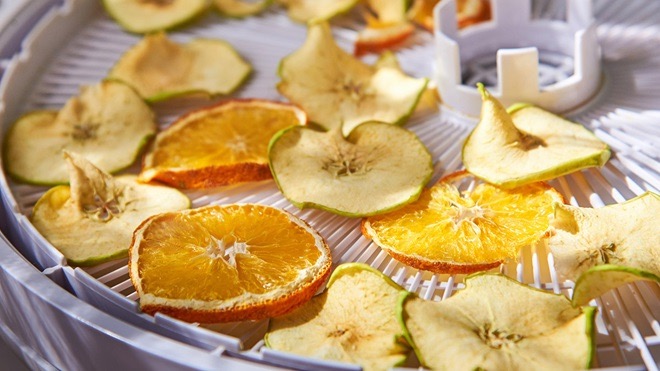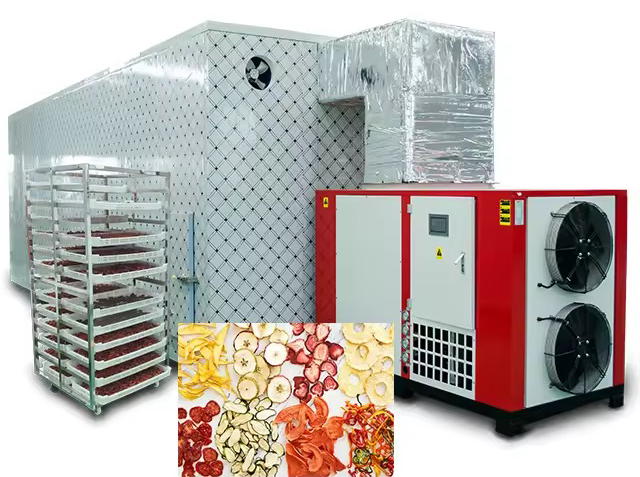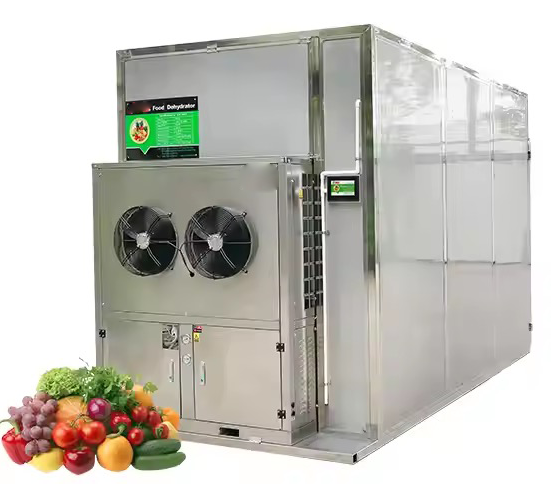
Content Menu
● Understanding Heat Pump Technology
>> Key Features of Heat Pump Dryers
● Disadvantages of Heat Pump Dryers
● Applications in Food Drying
>> Benefits of Heat Pump Food Dehydrators
● Comparative Analysis
● User Experience and Practical Considerations
>> User Experience Factors
● Conclusion
● FAQ
>> 1. What are the main disadvantages of a heat pump dryer?
>> 2. Are heat pump dryers worth the investment?
>> 3. How does a heat pump dryer compare to a conventional dryer?
>> 4. Can heat pump technology be used for food dehydration?
>> 5. What maintenance do heat pump dryers require?
● Citations:
Heat pump dryers have gained popularity in recent years due to their energy efficiency and gentler drying capabilities. However, like any technology, they come with their own set of disadvantages. This article explores the various downsides of using heat pump dryers, particularly in the context of food drying machines, which are essential for preserving food quality and extending shelf life.

Understanding Heat Pump Technology
Heat pump dryers operate using a closed-loop system that recycles air. Instead of venting hot air outside, they extract moisture from the air inside the drum and condense it into water. This process not only saves energy but also allows for more controlled drying temperatures, which is particularly beneficial for delicate fabrics and food items.
Key Features of Heat Pump Dryers
- Energy Efficiency: Heat pump dryers are known for their lower energy consumption compared to conventional dryers. They can be up to 28% more efficient, resulting in significant savings on electricity bills over time.
- Gentle Drying: The lower operating temperatures make heat pump dryers gentler on clothes and food items, reducing the risk of damage.
- Ventless Design: These dryers do not require external venting, making them suitable for apartments or homes without proper ventilation.
Disadvantages of Heat Pump Dryers
Despite their advantages, heat pump dryers also have several notable downsides:
- Longer Drying Times: One of the primary drawbacks is that heat pump dryers generally take longer to dry items compared to traditional dryers. The lower temperatures required for drying can extend drying cycles by 15 to 30 minutes or more. This can be particularly inconvenient for users who need quick turnaround times for laundry or food preparation.
- Higher Initial Cost: The upfront cost of heat pump dryers can be significantly higher than that of conventional models. This initial investment can deter some consumers, despite the potential long-term savings on energy bills. For businesses or households with tight budgets, this cost factor can be a major consideration.
- Smaller Capacity: Many heat pump dryer models have smaller drum capacities compared to traditional dryers. This limitation may not be suitable for larger households or those who frequently do laundry. Additionally, when it comes to food drying applications, smaller capacities can limit the volume of food that can be processed at one time.
- Maintenance Requirements: Regular maintenance is crucial for optimal performance. Filters need frequent cleaning, and internal components may require periodic checks to prevent lint buildup and ensure efficient operation. Neglecting maintenance can lead to decreased efficiency and increased energy consumption over time.
- Risk of Mold Growth: Since heat pump dryers operate similarly to dehumidifiers, they generate moisture during the drying process. If water leaks or if the unit is not maintained properly, it can lead to mold growth inside the dryer. This is particularly concerning in humid environments where moisture levels are already high.

Applications in Food Drying
Heat pump technology is also applicable in food dehydration processes. Food dehydrators that utilize heat pump technology effectively remove moisture from fruits, vegetables, and meats while preserving nutrients and flavors better than traditional methods.
Benefits of Heat Pump Food Dehydrators
- Nutrient Preservation: The gentle drying process at lower temperatures helps retain essential nutrients and flavors in food items. This is especially important for health-conscious consumers who want to maintain the nutritional value of their dried foods.
- Versatility: Heat pump food dehydrators can handle a variety of foods including herbs, fruits, vegetables, and even meats without compromising quality. This versatility makes them an attractive option for both home cooks and commercial food processors.
- Consistent Results: Heat pump technology allows for uniform drying across different types of food products, ensuring that all items reach the desired level of dryness without over-drying or under-drying. Consistency is key in food preparation and preservation, making this technology highly desirable.
- Reduced Risk of Spoilage: By effectively removing moisture from food items at controlled temperatures, heat pump dehydrators minimize the risk of spoilage due to microbial growth. This characteristic is critical for extending shelf life and ensuring food safety.
Comparative Analysis
To better understand the advantages and disadvantages of heat pump dryers versus traditional vented dryers, here is a comparative table:
| Feature | Heat Pump Dryer | Traditional Dryer |
| Energy Consumption | Lower (up to 28% less) | Higher |
| Drying Temperature | Lower (gentler on fabrics) | Higher (can damage delicate fabrics) |
| Installation | Flexible (no venting required) | Requires external venting |
| Initial Cost | Higher upfront cost | Generally lower upfront cost |
| Drying Time | Longer (15-30 minutes more) | Shorter |
| Maintenance | Requires regular filter cleaning | Less frequent maintenance needed |
User Experience and Practical Considerations
When considering a heat pump dryer or a heat pump-based food dehydrator, user experience plays a significant role in decision-making.
User Experience Factors
- Noise Levels: Many users report that heat pump dryers tend to operate more quietly than traditional models due to their design and operation method. This can be an important factor for those living in smaller spaces or who prefer a quieter environment during operation.
- Ease of Use: Most modern heat pump dryers come equipped with user-friendly controls and settings that allow users to customize drying cycles based on fabric type or moisture levels. Similarly, heat pump dehydrators often feature presets that make it easier to dry various foods without constant monitoring.
- Energy Monitoring Features: Some advanced models offer energy consumption tracking features that help users monitor their usage patterns and optimize energy efficiency further. This transparency can lead to better decision-making regarding usage habits.
Conclusion
In summary, while heat pump dryers offer numerous benefits such as energy efficiency and gentler drying processes, they also come with certain disadvantages including longer drying times, higher initial costs, smaller capacities, maintenance needs, and potential mold risks. For those considering investing in a heat pump dryer or a food dehydrator using this technology, it is essential to weigh these pros and cons carefully against individual needs and circumstances.
Heat pump technology represents a significant advancement in both laundry care and food preservation methods; however, understanding its limitations is crucial for making informed decisions. Whether you are a home user looking to reduce your carbon footprint or a commercial entity aiming for consistent quality in food products, evaluating these factors will guide you toward the right choice.

FAQ
1. What are the main disadvantages of a heat pump dryer?
The main disadvantages include longer drying times, higher initial costs, smaller capacity options, maintenance requirements, and potential mold growth if not properly maintained.
2. Are heat pump dryers worth the investment?
While they have a higher upfront cost compared to traditional dryers, their energy efficiency can lead to significant savings over time, making them a worthwhile investment for many consumers.
3. How does a heat pump dryer compare to a conventional dryer?
Heat pump dryers are generally more energy-efficient and gentler on fabrics but take longer to dry clothes compared to conventional models.
4. Can heat pump technology be used for food dehydration?
Yes! Heat pump technology is effective for food dehydration as it preserves nutrients while efficiently removing moisture from various foods.
5. What maintenance do heat pump dryers require?
Regular cleaning of filters is necessary to ensure optimal performance. Additionally, some models may require periodic cleaning of internal components to prevent lint buildup.
Citations:
[1] https://www.familyhandyman.com/article/heat-pump-dryer/
[2] https://www.100percent.co.nz/blog/heat-pump-dryer-vs-condenser-dryer
[3] https://www.dryeratech.com/what-are-the-advantages-and-disadvantages-of-a-heat-pump-dryer.html
[4] https://www.istockphoto.com/photos/fruit-dryer
[5] https://www.youtube.com/watch?v=9DSGcVhjHEc
[6] https://www.youtube.com/watch?v=5vE0ILAYDGw
[7] https://www.aztecappliance.com/blog/pros-cons-of-heat-pump-dryer
[8] https://laundry.com.ua/en/sushilnye-mashiny-s-teplovym-nasosom/
[9] https://www.freepik.com/free-photos-vectors/food-dryer
[10] https://www.youtube.com/watch?v=mtDzdYoyeR8











